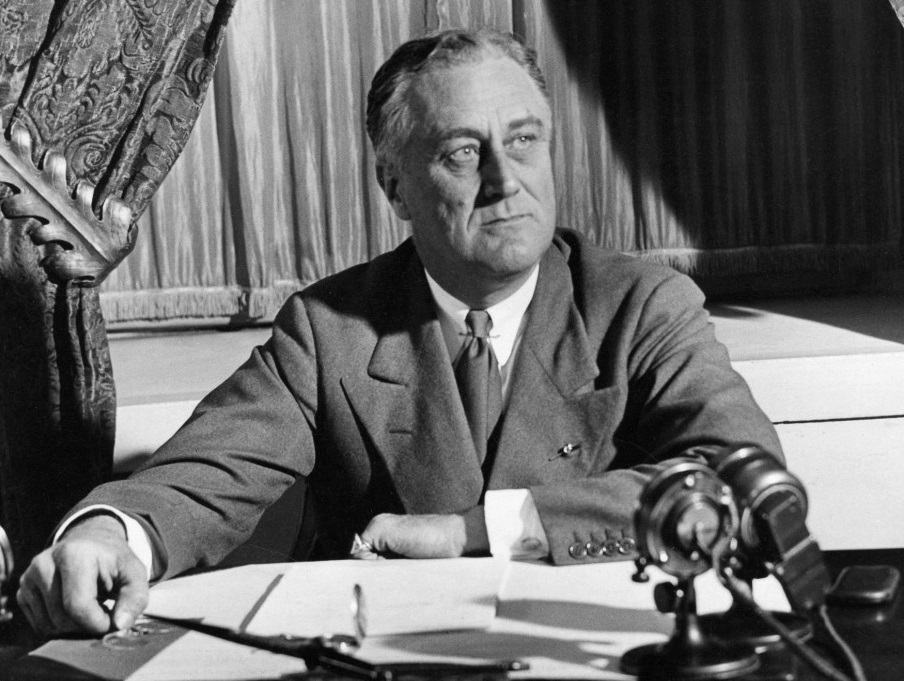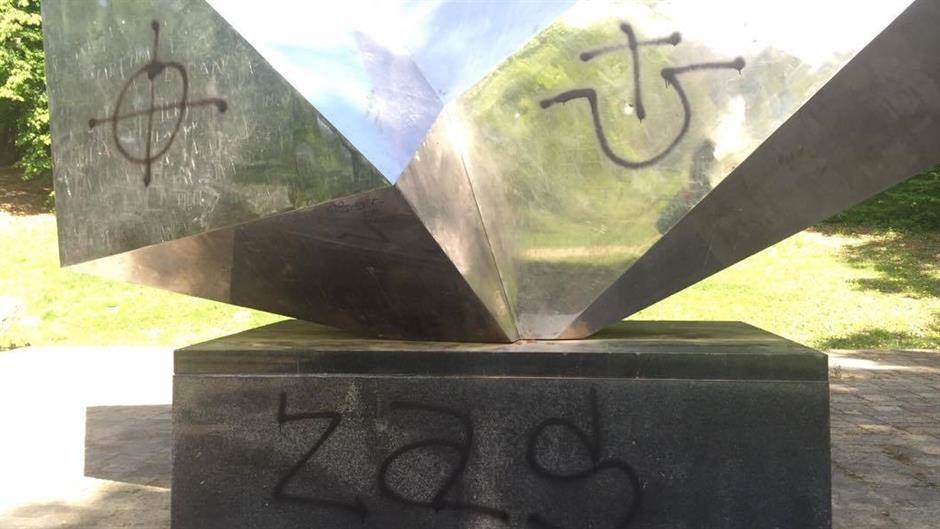The first hearing for the trial of Croatian Filip Drača, a 24-year-old who vandalized the Franjo Tuđman statue in Zagreb with sickle and hammer graffiti earlier this year, was held on Thursday, November 28, 2019. A criminal complaint has been filed against him for property damage, and the State Attorney's Office is seeking a sentence of 10 months and 3 years' probation.
Croatian Inquiry
After Filip Drača sprayed a sickle and a hammer on the Franjo Tuđman statue on January 5, 2019; a public inquiry was launched to bring this perpetrator to justice as soon as possible, as reported by Anja Vladisavljević/Balkan Insight on November 29, 2019. Police have released security camera photos, and many major media outlets have been implicitly urging citizens to 'make a difference'.
Such demonstrations of force appear to send the public a message that the character and accomplishments of Croatia’s first President Franjo Tuđman must not be criticized. To counteract apparent intimidation tactics, a group of left-wing parties and associations organized a protest, and around 20,000 HRK (2700 EUR) has been raised for Drača’s defense.
When Drača was arrested, he confessed immediately. But when asked in court if he felt guilty, he responded that he did not feel guilty for the alleged offence. In an interview with Novosti newspaper in January, he said: “My intent wasn’t that serious, I meant to provoke and tease a little. If I offended anyone, that’s their problem. There is something wrong with anyone who perceives Tuđman and his small comical country as sacred.”

Resembles Franklin D. Roosevelt
The controversial four-meter-high Tuđman statue was unveiled in December 2018, on the 19th anniversary of his death, and was met with protests which resulted in arrests.
Critics have pointed out that the statue doesn’t resemble the Croatian president at all. Defenders indicated that the sculptor had taken considerable artistic license (apparently by softening the president’s distinctive features). In fact, it might be argued that the Zagreb statue looks more like US President Franklin D. Roosevelt, who led the United States out of the Great Depression and back to economic prosperity in the 1930’s.
Graffiti Normally Minor Offense
The first hearing was held Thursday, November 28, 2019 at the Zagreb Municipal Criminal Court. The prosecution claims that the property was severely damaged and that it was the perpetrator’s intention to damage the statue and alter its appearance. But as Drača’s lawyer Lina Budak pointed out, the statue was not severely damaged – nor has its value or usability been diminished.
Budak also believes that a criminal trial should have never been initiated because this is a "minor offense" and the case could have been prosecuted as a misdemeanor. It’s obvious that there are two sets of criteria, she emphasized, since official investigations into graffiti vandalism are rarely initiated, or ever proceed to a criminal trial. As Zagreb Mayor Bandić once said, “Don't make an elephant out of a fly ... if any (monument) is damaged, let us know and we will restore it in two days,” after the statues dedicated to anti-fascists/communists in Dotrščina were vandalized. The question is why don't the same principles apply to the Franjo Tuđman statue.

Croatian Anti-fascist Statues Destroyed
It’s worth noting that over 3000 anti-fascist statues have been destroyed in Croatia since the 1990s. That destruction is ongoing, and the culprit is often an "unknown perpetrator". In other words, there doesn't appear to be any government interest in prosecuting anyone who destroys monuments dedicated to anti-fascism.
Repair Costs Not Disclosed
Perhaps the most interesting detail from today's hearing is that the City of Zagreb, which owns the statue, has not yet provided an estimate of the alleged material damage. This means that the criminal complaint was filed without knowing the extent of the damage, which is problematic since the gravity of the offense is directly correlated to the repair costs - whether they amount to 100 or 100,000 HRK.
Regarding damage repairs, the City of Zagreb already pays lump sums of money, among other things, to two contractors who maintain the statue and grounds. Those maintenance contracts include removal of graffiti, so it seems excessive to claim any harm to the 'property owner' or the city.
The hearing ended after the plaintiffs and the defendants had presented their evidence. And, the next hearing is scheduled on February 21, 2020 at 9:00. The trial is open to the public.
To stay updated on the trial of Filip Drača and Croatian politics, follow our page here.


